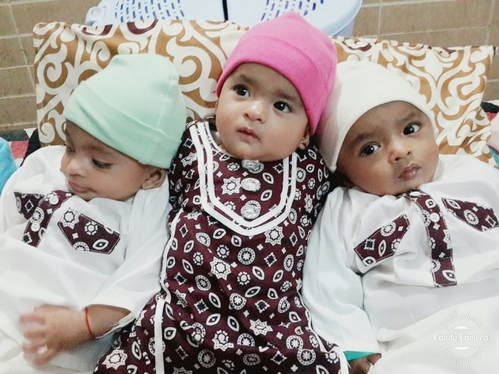Dr Tufail Ahmad is a Pakistani doctor working at MSF’s nutrition programme at the District Headquarter Hospital in Dera Murad Jamali, eastern Balochistan, Pakistan.
I’ve worked as a doctor with Médecins Sans Frontières (MSF) for the past four years. At the MSF clinic in Dera Murad Jamali, I see several malnourished, premature and sick babies every day. Have you ever seen a newborn baby being given black tea, honey or herbs right after birth? Have you ever witnessed a mother refusing to breastfeed, convinced the milk could make her child sick? You probably haven’t, but we see such cases all the time in Dera Murad Jamali.
Eastern Balochistan, where Dera Murad Jamali is located, is an area of Pakistan with dire malnutrition levels. According to the 2012-2013 Pakistan Demographic and Health Survey, around 45 per cent of children in the country show evidence of chronic malnutrition or stunting, while 11 per cent are acutely malnourished and require urgent treatment. Here in the districts of Naseerabad and Jaffarabad, I wouldn’t be surprised if the situation was worse. When I first came to the area to work, I was really shocked.
In an area where there is no food insecurity, it’s surprising that we should see so many malnourished children. The main reason behind this is local health practices. Mothers often work in the fields, meaning they can’t invest as much time in the care of their children. Many women experience consecutive pregnancies and are unable to practice birth spacing; consequently, they give birth to premature children. A woman who gives birth to a premature baby is advised to space out her next pregnancy but that generally doesn’t happen. Many mothers don’t breastfeed or don’t know how to do it properly and babies are often fed with black tea, herbs or powdered milk prepared in an unhygienic way.

I hope these practices change one day. There is an immense need to improve the community’s awareness of good health practices. MSF is working very hard on this.
I still remember when my children were born. It was my wife’s first pregnancy and she was carrying triplets. While I was at work, medical complications forced my wife to give birth to in another town after only 31 weeks of pregnancy. She delivered one girl and two boys, who weighed a mere 1.42, 1.26 and 1.13 kilograms respectively. Being a doctor, I know it’s hard for babies with such low weights to survive. I was afraid they would die.
The hospital where my wife delivered referred the babies to the MSF nursery in Balochistan, as it’s the only medical facility in the area that can take such premature babies. I suddenly found myself treating my own children.
I treated them for 26 days. There were ups and down. I saw them getting better day by day. Mother’s milk is always the first choice, and breastfeeding really helps children to gain weight. My children survived and started getting healthy. They are 16 months old now, and still breastfeed. They are just as healthy as other children.
My children are proof that even if babies are born prematurely and have very low birth weights or are severely malnourished, they can be saved. But parents must protect their children in the first place by taking them to hospital on time, giving them breast milk and proper weaning after six months, avoiding unsafe health practices and so on.
Whenever I see newborn babies fighting for their life, it reminds me of my own three children. It feels like I am treating my own children every single day.
I want to save them all.
In 2008, MSF began working in the eastern districts of Jaffarabad and Naseerabad, primarily supporting nutrition programmes for children under the age of five in the District Headquarter Hospital in Dera Murad Jamali with a network of mobile clinics and outreach sites. MSF teams support inpatient therapeutic feeding for children with complicated malnutrition, a general paediatric ward, and newborn babies. It also supports an ambulatory therapeutic feeding programme, which provides essential medical care to more than 10,000 children annually. MSF’s specific objective with regard to malnutrition is improved access to and the provision of quality nutrition support to severely malnourished children and breastfeeding mothers.
The nutrition situation in Pakistan has been an issue of serious concern, especially among children under five years old. According to the 2012-2013 Pakistan Demographic and Health Survey, around 45 per cent of children under the age of five show evidence of stunting, 11 per cent are wasted and 30 per cent are underweight. This situation contributes to high mortality and morbidity rates among children under five years of age.


